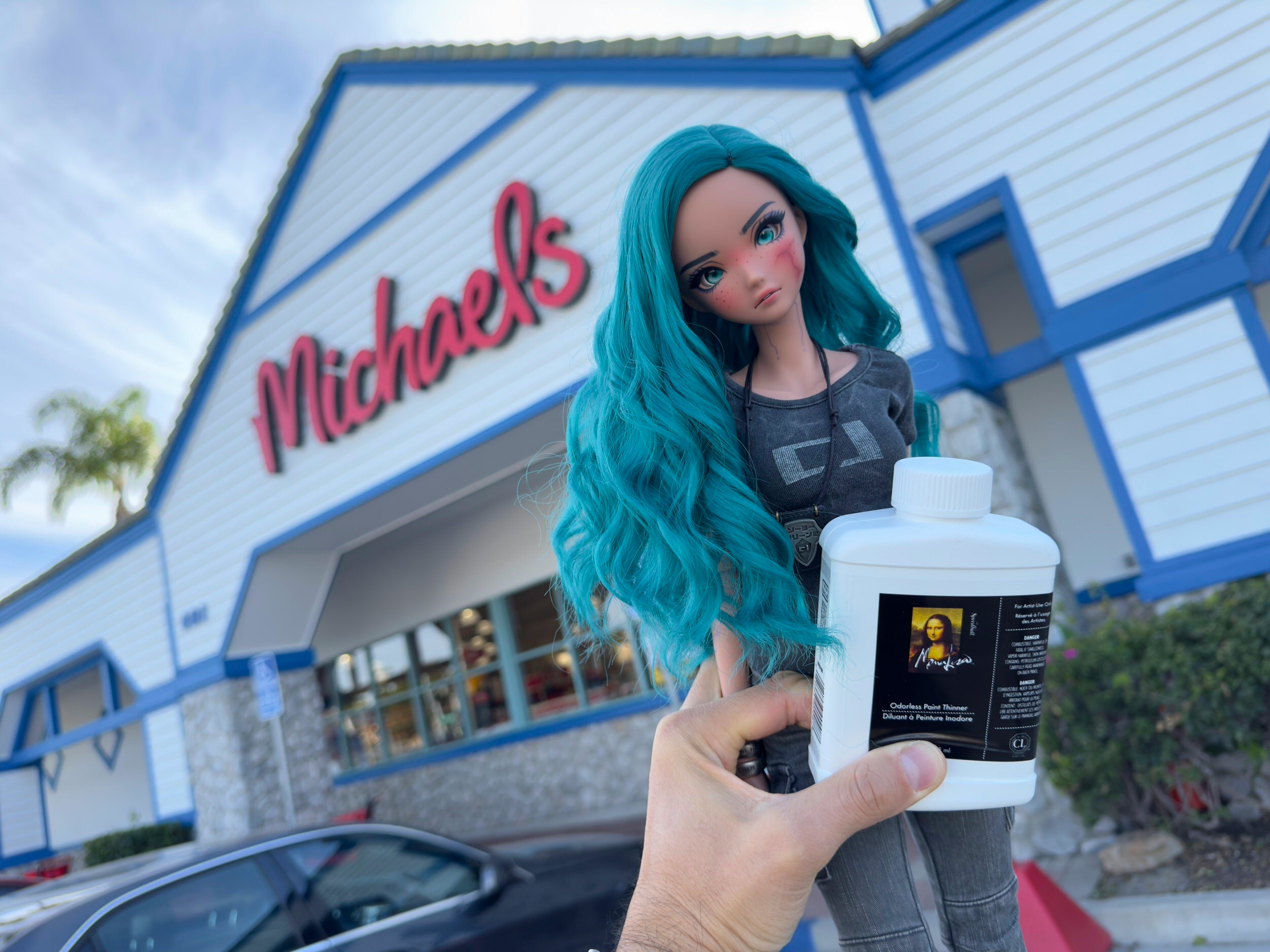About Stain Risk Ratings

Smart Dolls are meticulously crafted from Sofubi (Short for "Soft Vinyl"), a material with a unique heritage in Japan, celebrated for its soft, pliable vinyl qualities derived from synthetic polymers. Renowned for its durability and exceptional capacity to capture intricate details, Sofubi represents a harmonious blend of traditional Japanese craftsmanship and modern material science, deeply rooted in the country's rich toy-making tradition.
However, akin to human skin, Sofubi is vulnerable to environmental factors, including heat, UV light, and moisture. Prolonged exposure to UV light, for instance, can significantly alter the properties of the synthetic polymers in Sofubi, affecting the material in ways similar to how natural elements impact human skin.
Consequently, even a white T-shirt, seemingly harmless in terms of staining, is assigned a "Stain Risk" rating of "LOW." This precautionary measure is due to the potential for the T-shirt to absorb moisture or odors, factors that might accelerate the polymer degradation process in your Smart Doll.
We provide these Stain Risk ratings for our apparel on each product detail page to ensure you are well-informed about potential risks before making a purchase. Our goal is to help you make decisions that will preserve the quality and longevity of your Smart Doll, understanding that, like all high-quality polymers, they require care to maintain their condition over time.
"LOW" Rating Explained
A "LOW" rating indicates minimal risk of staining. We refrain from using a "zero" rating because even white fabrics can lead to discoloration due to environmental factors previously mentioned. While a white T-shirt might not directly stain, some customers perceive any discoloration as staining.
Wigs receive a "Low" rating as they envelop the doll's head. Despite using light-colored wig caps, any material in contact with the Smart Doll's skin could potentially cause discoloration. The wig fibers themselves are not dyed and are unlikely to stain, but they may still affect the doll's surface color over time.
Vinyl accessories, like Vinyl Pumps, are unlikely to stain but could cause discoloration from environmental exposure. Footwear with light linings might also discolor the doll's feet due to close contact.
"MEDIUM" Rating
Items with a "MEDIUM" rating have a potential for staining based on usage. Experiences vary among customers with "Medium" rated products; some report no staining, while others do. Mohair wigs are dyed and thus carry a "Medium" rating.
Apparel that has undergone pigment washing is assigned a "medium" stain risk rating due to the nature of pigment dyes. Pigment washing is a process where pigment dye is applied to the fabric's surface, creating a vintage or worn appearance. Unlike other dyes that chemically bond with fabric fibers, pigment dyes rest on the surface. This surface-level application increases the likelihood of color transfer to vinyl dolls, particularly in areas subject to frequent handling or pressure, such as rubbing the garment against the doll's skin or around the arms. Darker fabrics are more prone to noticeable pigment transfer.
However, since the pigment does not form a deep bond with the fabric, color transfer to the doll's vinyl skin may be easier to remove. Often, gentle cleaning agents or paint thinner can be effective, though caution is advised when using these solvents. It's important to avoid inhaling the fumes deeply or allowing them to come into contact with your eyes.
Recommended thinners that we use for production are by Speedball and Mr Color Thinner.
"HIGH" Rating
A "HIGH" rating signals a significant risk of staining. Protective measures, such as stain prevention leggings or bodysuits, or using a spare body, are recommended to mitigate this risk.
Additional Notes
- Leather items in contact with the doll or other fabrics may stain, though leather shoes with light linings typically only risk discoloration.
- All our dyed apparel is treated with a color-fixing agent to reduce staining risks.
- We conduct extensive staining tests on our apparel, from weeks to months, to ensure quality.
- Prolonged contact with even white fabrics may cause discoloration, including stain-prevention accessories.
Warranty Information
We offer aftercare for breakages but do not cover discoloration from aging/polymer degradation or potential stains from product use. Customers must acknowledge and accept these terms prior to purchase.
Maintaining Your Smart Doll
- Utilize stain prevention accessories like leggings or socks.
- Regularly inspect your doll for early signs of staining, which can often be removed with paint thinner if caught early.
- Change your doll's clothes frequently to allow the vinyl to "breathe."
- While daily apparel changes for your doll aren't necessary, maintaining personal hygiene by changing your own clothes regularly is advised – especially underwear every four days, using the front, back, inside out rotation.
This video demonstrates a method for removing pigment dye transfer from a Smart Doll's body. While this technique has some effectiveness for apparel that has undergone dye washing, its success is not guaranteed. Dye washing is a process where dye chemically bonds with the fabric fibers, altering the color of the fabric entirely. Because these dyes are intended to penetrate materials, removing dye stains from vinyl can be particularly challenging.